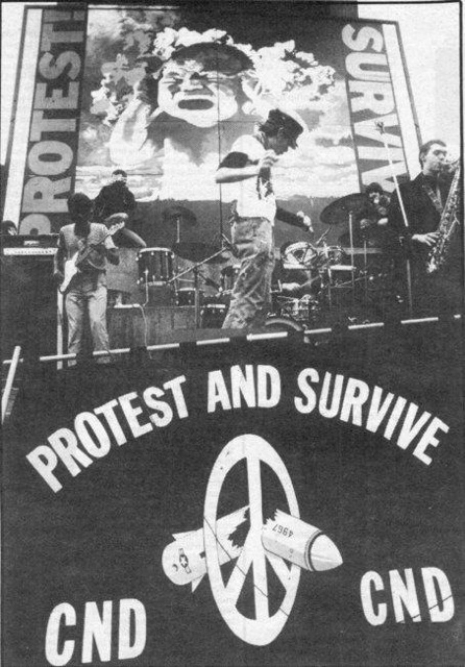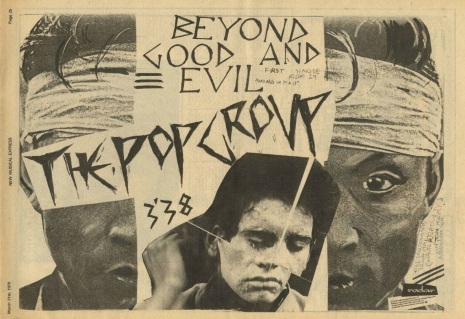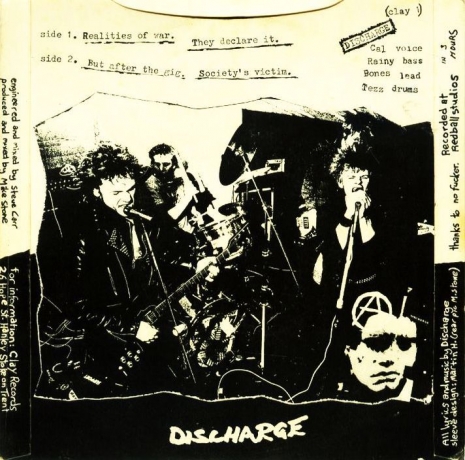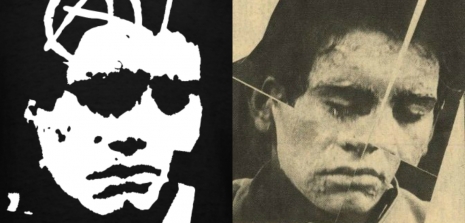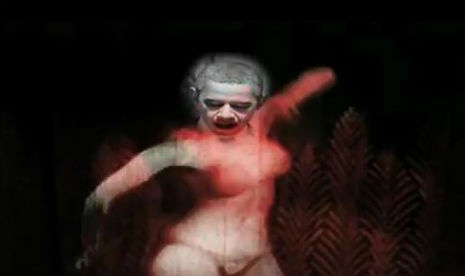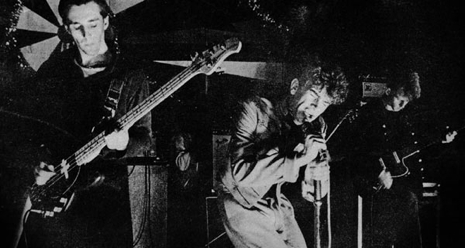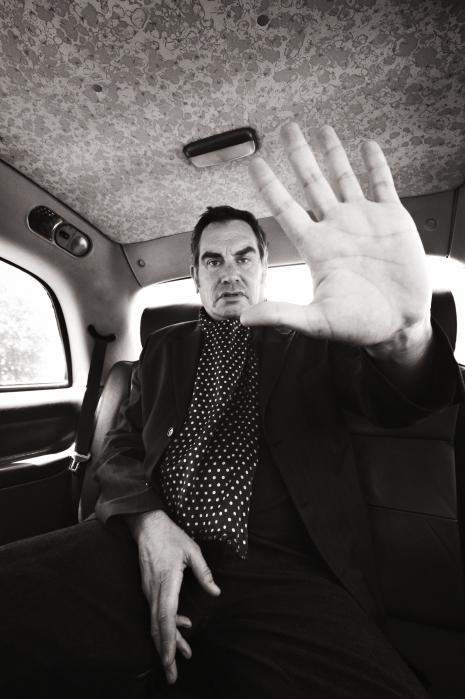
Photo of Mark Stewart by Chiara Meattelli and Dominic Lee
Mark Stewart on Mark Fisher:
“HE CAME FROM THE PRESENT TO SAVE THE FUTURE AND CHANGE THE PAST.”
The question Mark, is this: Where to begin the discussion of the great free-thinker and theorist that was Mark Fisher – when the object was somebody who dealt with the ambiguity of time itself?
Can I outdo the last intellectual missive on the matter? I very much doubt it. Should I want to? If I learnt anything about Mark, I can wholeheartedly say no, I shouldn’t. He would much rather I invest my time reaching the audiences, who as yet, are entirely unaware of both him and his work. Or, better still, devising methods of my own, capable of derailing the deluge of despair, that dictates your cyclical resignation to “whatever will be, will be”, as Doris once sang. Mark’s switching of the baton to me, is not a position of privilege that I, and I alone hold, you understand? Mark made the case for all to seize it – and in turn pass it on – if we are to achieve what is required to tack through the ill-wind that blows. And that is poignant. For it was Raymond Briggs, who, with his graphic novel When The Wind Blows (pub. 1982), made his much needed anti-nuclear narrative, accessible to children. Briggs, like Fisher and other great writers, recognised that in order to avert what is seen by some as the inevitable future – one must reach the youngest of audiences. Far too many of those – now in their 40s and 50s – are fully accepting of all that their political ‘leaders’ feed them.
Mark’s work, as well as being a call to arms, is an open invitation to be challenged in order to instil agency, and ignite – with a ferociousness like I have never seen before – an anarchical phenomenon that has reached even the eye of Chile’s president, Gabriel Boric. Therefore, proving itself capable of playing an entirely different game, and winning. Which, in itself, brings me to my penning this and contributing to Niall McCann’s forthcoming film about Mark Fisher’s life & work – Lost Futures. Niall is committed to making Mark accessible to as many and varied an audience as possible. Let’s assist. For every person who’s aware of Mark Fisher’s work, there are infinite others who aren’t. If his unparalleled discourse is to hold the status of his ‘lasting legacy’, which we, his devotees rightly bestow upon him, then it is us – those already well-versed in his vision – who carry the honour of the arduous task of spreading his word. And yes, it will be arduous, but that’s the least we, who claim to admire Fisher, should be prepared to shoulder, if we are worthy of declaring ourselves to be forever changed and inspired by his work. It’s worth remembering the integral role that the blessing and a curse – that is the internet – has to play, in facilitating these necessary connections. When Fisher cast his critique of the net, so ably identifying all its holes, he did so in the hope that it would all be stitched up with better solutions. After all, there is no catch to be had, without the means to captivate what lies beneath. He plunged us to the depths in helping us to understand the effects of social media, so as to provide us with the determination to surface, with all manner of attached material coming up for air with us.
Mark wanted everyone to be in on the act. He was more than capable of disproving his most ardent ‘academic’ critics, but he’d sooner awaken the opposition than rebuke them. He never favoured wallowing in one-upmanship over the wonderment of a new inductee to the cause. Mark knew full well that the most vital respondents to his cries, were not those with enviable résumés they’d had the privilege of designing themselves, but instead those that had theirs dictated to them. The people who’ve spent a life being underestimated for all manner of reasons beyond their control, but most of all, their lack of access to a formal licence to question EVERYTHING. We need them.
Mark talked much about his belief of the links between mental health and circumstance, so if little blue pills that help get it up, or surgeries that leave patients feeling fuller, less flat, are made readily available on the NHS prescriptions list, then shouldn’t Fisher’s back catalogue be on it too? He stabs right at the heart of the mental health plague. No amount of therapy slugs or anti-depressants can better arm the depressed with the tools they need to understand their plight, than Mark Fisher, surely? And where better to reach the afflicted, than the environments that see very little material that speaks to our contemporary natural condition.
I spoke to Niall McCann (director of ‘Lost Futures’) about my writing this piece and he made reference to a quote that Fisher had once said of prisons: “Only prisoners have time to read, and if you want to engage in a twenty year long research project funded by the state, you will have to kill someone.” No greater truth. And right there, lies one of our biggest opportunities, staring us in the face. For as well as the need to reach the youngest of audiences with thought provoking material to avoid the continuation of the status quo, is it not equally important to reach all – who, by definition of their circumstances – are a ‘captive audience’? Prisoners; long-term hospital patients, mental health ward patients; ATU admissions; care home residents? After all, it is they, who tend to have unrivalled lived experience of the effects of privatisation. None of the settings in which these potential audiences reside are considered hip so get overlooked – and so too does the opportunity to learn from those within.
Surely this has to change? How to achieve that? Answers on a postcard to the usual address please, or perhaps better still, a deleted one. See it as a random act of kindness. Remember those? It’s time for retiring ‘radicals’ everywhere, to cast aside the copies of Keep Calm And Colour In Unicorns and instead inundate the mail boxes of anybody and everybody you would ordinarily deem to ‘have nothing in common with’. What’s the alternative? That you continue with a life of blinkered, onanistic self-assurance, immune to the truth of the surrounding landscape? Is this who you want to be? Only satisfied when you’ve fulfilled your own needs, regardless of who or what it denies in the process? It’s time to diversify and digress from the barely tolerated diet, and instead force yourself to swallow your most unpalatable hypocrisies. Break them down with a good glug of acid and permit your imagination to transform them into first class fertile matter, to enable new life to flourish in pastures new.
I asked Bobby Gillespie and Obsolete Capitalism to summarise what they believe to be the essence of Mark Fisher’s work for inclusion in this piece.
Bobby Gillespie:
“The beauty of Mark Fisher’s laser sharp critique of the destructive effects of life under Neoliberalism, was that it spoke to ordinary people in plain language that went beyond the often-hermetic intellectual world of academia. He is greatly missed. We need more voices like Mark’s, more than ever.”
So, let’s assist in courting the audience Mark craved to reach the most. In another conversation with a friend I’ve recently introduced to Mark’s work, they said: “It feels to me like there is a feast of fawning over Mark’s theories and a famine of practice out there.” A valid point. There are people pushing themselves to continue his praxis – one such example that comes to mind is Oneohtrix Point Never. There are numerous others, but why stop there? What can be gained by knowing much of what is wrong and how it occurred, if we just hoard the horrors in the hope that somebody else will pick up the slack in remedying them? It ain’t gonna happen. Meanwhile, the tendency to promote oneself as one of Fisher’s dedicated disciples to the already switched on, on social media, prevails. Perhaps a sin we are all guilty of to a greater or lesser degree I expect, but as the expression goes: about as much use as an ashtray on a motorbike. If you’re already familiar with Mark Fisher’s work, by now, you might be vexed that I’ve made little or no reference to Capitalist Realism, or Hauntology…etc. Maybe that’s because primarily Mark was my mate. I miss him. And for me, promoting the generosity of Mark Fisher the person, will always come first before his works. Mark gave you those. They are all available to be devoured and shared. Please do. The last word goes to Obsolete Capitalism, proving that although Mark wanted to appeal to everyone, he had a habit of impressing upon some of us an acuity that felt special, and unique to our innermost thoughts and experiences.
Obsolete Capitalism, June 2022:
“Like other great thinkers of the past – Nietzsche and Deleuze among others – Mark Fisher is a writer with “no mediation”. What is left when he tears away with a simple and definitive gesture, the enveloping screen on which the great epic fable of ‘capitalist realism’ is projected? Only emptiness. Instead of living in an age ‘saturated with history’ as Nietzsche wrote, Fisher has clearly and capably described our age as ‘saturated with emptiness’. While this “emptiness” expands into every corner of capitalism, it also discharges the supposed systemic alternatives opposing it. Helping us in liberation from ‘horror vacui’ and recognising the emptiness in the false fullness of the Real, is his most generous and enduring intellectual legacy.”
A statement about film-in-progress Lost Futures from director Niall McCann:
The video we have produced for “Storm Crow” is an attempt to visualise Mark Fisher’s ideas and combine them with music which comes from a similar place. An experiment in matching his ideas to Mark Stewart’s music in a playful way, recontextualizing old TV advertisements—which both Marks would have grown up watching—zombie movies, along with pivotal social and political moments which helped bring us to what Fisher called “Capitalist Realism” which is the idea that it is now easier to imagine the end of the world, than the end of capitalism.
The vast body of work Fisher left behind explores capitalism’s unassailable role in our lives, the closing off of any sense of a future different from the present, and the effects of this on us as individuals. His writings lifted up the veil and showed the world afresh to his readers, and that’s the core idea in the music video.
The film itself revolves around something which is central to Mark Fisher’s work: the future. When I was young the future was everywhere. It could be anything, it seemed rife with possibilities, for something better. Now, it’s only talked about as a more terrifying version of the present. This is a film about the futures we have lost and how we might start imagining new ones again.
We will use Mark Fisher’s life and his brilliant ideas as a guide through some of the most urgent questions of our time.
‘Storm Crow’ by Mark Stewart also features on On-U Sound’s Pay It All Back Vol 8 compilation. Listen / Order Pay It All Back Vol 8.
For more information about Lost Futures, a film about Mark Fisher currently in development, head here.
Niall McCann (Redemption Films)
Mark Stewart Official Website
Repeater Books
Obsolete Capitalism
Words by Mark Stewart, June 2022 ©






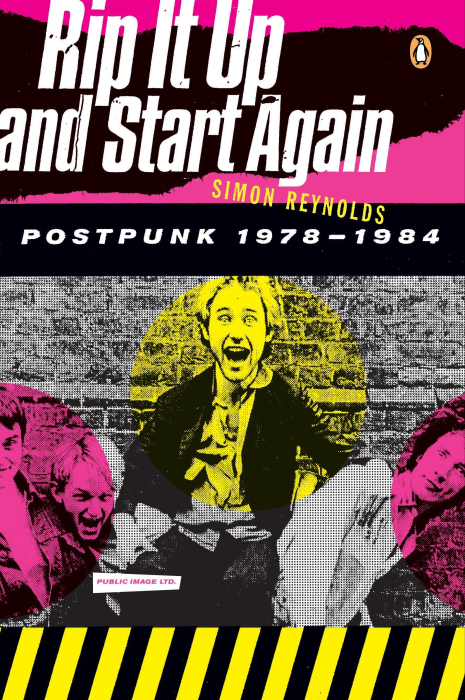
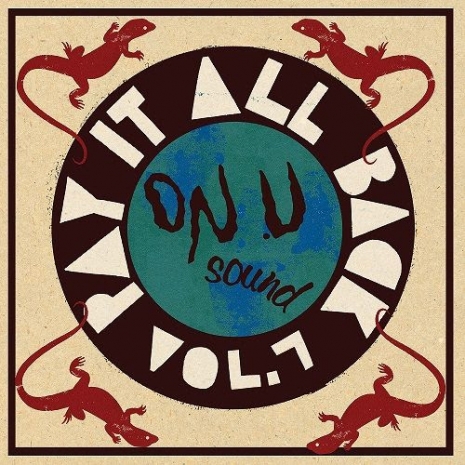

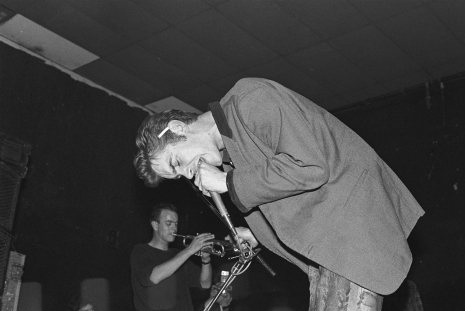
_465_769_int.jpg)
